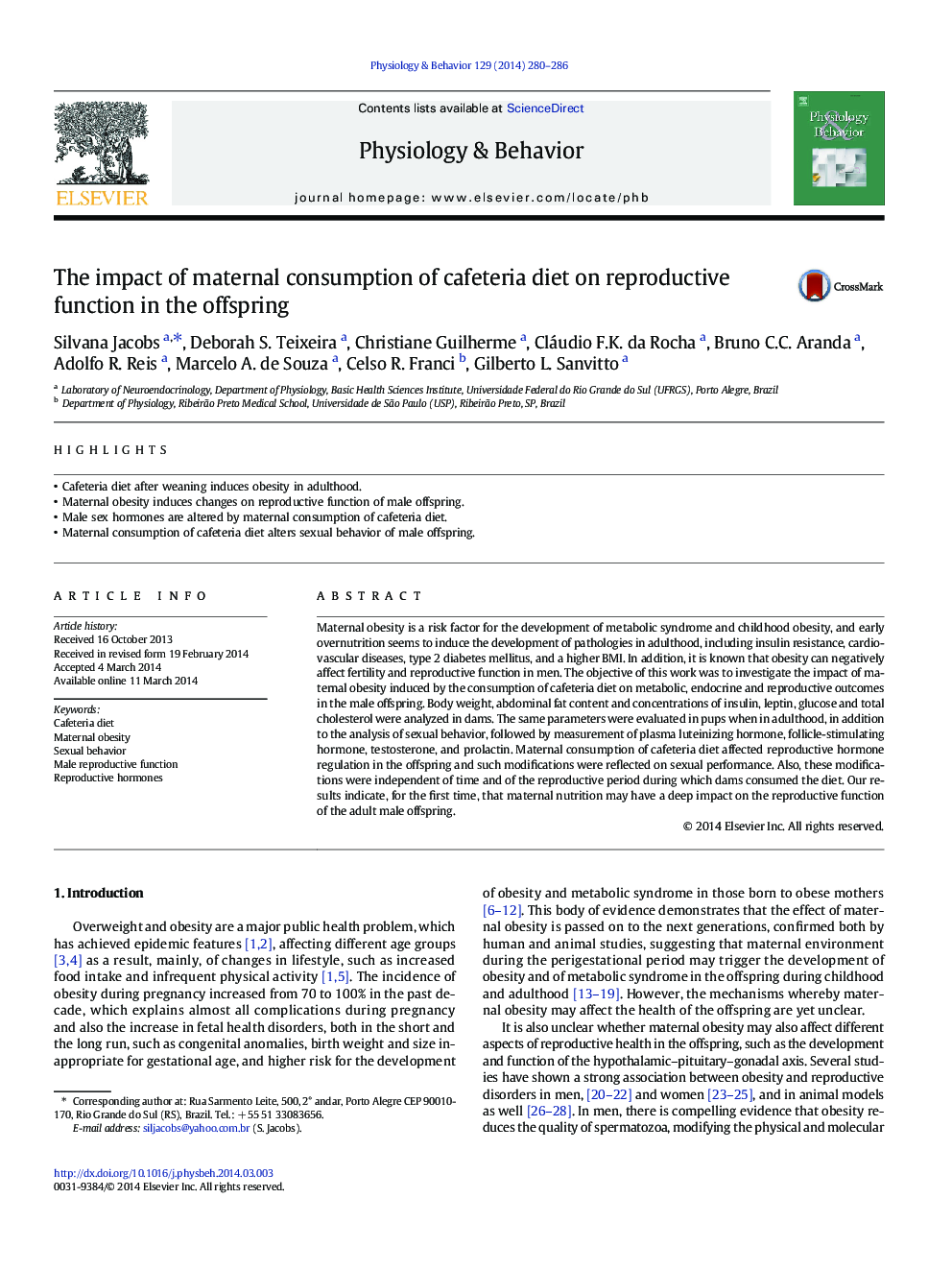| Article ID | Journal | Published Year | Pages | File Type |
|---|---|---|---|---|
| 5924322 | Physiology & Behavior | 2014 | 7 Pages |
â¢Cafeteria diet after weaning induces obesity in adulthood.â¢Maternal obesity induces changes on reproductive function of male offspring.â¢Male sex hormones are altered by maternal consumption of cafeteria diet.â¢Maternal consumption of cafeteria diet alters sexual behavior of male offspring.
Maternal obesity is a risk factor for the development of metabolic syndrome and childhood obesity, and early overnutrition seems to induce the development of pathologies in adulthood, including insulin resistance, cardiovascular diseases, type 2 diabetes mellitus, and a higher BMI. In addition, it is known that obesity can negatively affect fertility and reproductive function in men. The objective of this work was to investigate the impact of maternal obesity induced by the consumption of cafeteria diet on metabolic, endocrine and reproductive outcomes in the male offspring. Body weight, abdominal fat content and concentrations of insulin, leptin, glucose and total cholesterol were analyzed in dams. The same parameters were evaluated in pups when in adulthood, in addition to the analysis of sexual behavior, followed by measurement of plasma luteinizing hormone, follicle-stimulating hormone, testosterone, and prolactin. Maternal consumption of cafeteria diet affected reproductive hormone regulation in the offspring and such modifications were reflected on sexual performance. Also, these modifications were independent of time and of the reproductive period during which dams consumed the diet. Our results indicate, for the first time, that maternal nutrition may have a deep impact on the reproductive function of the adult male offspring.
